reports and documents
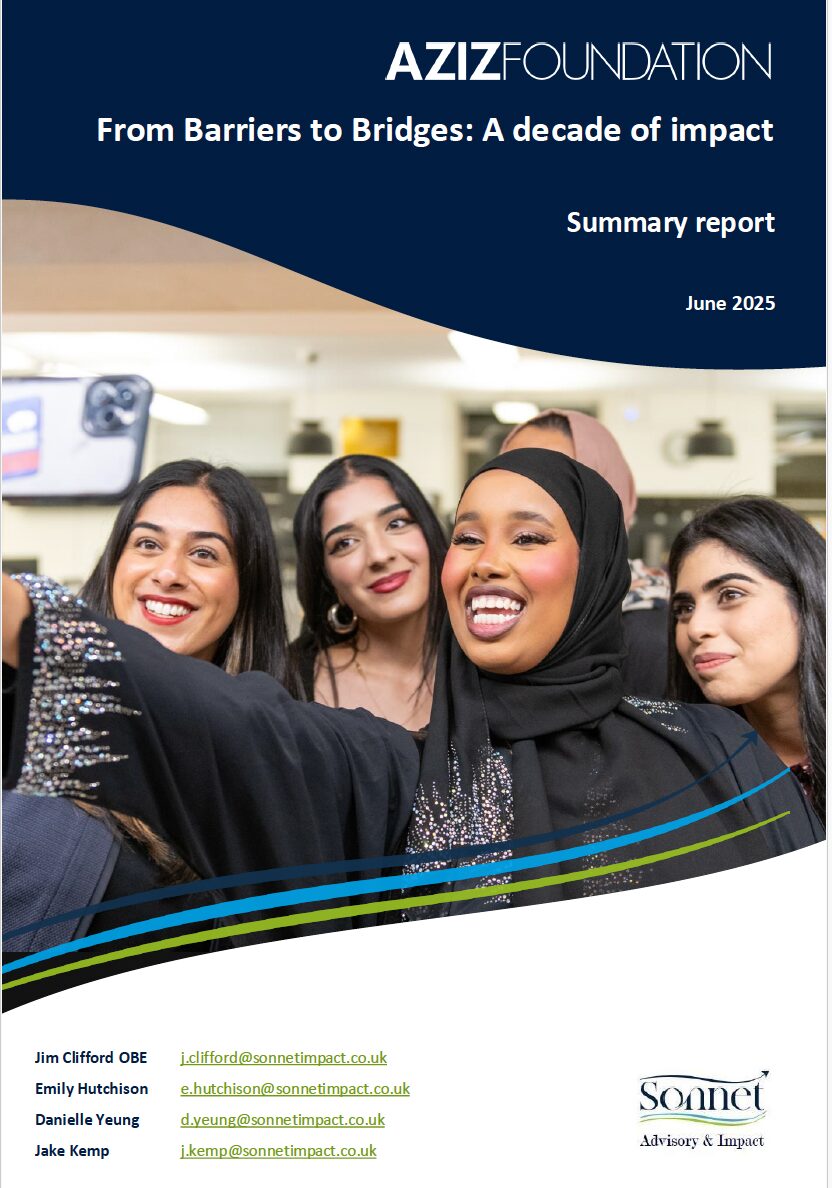
From Barriers to Bridges: A decade of Impact - Summary report
Sonnet Advisory & Impact CIC was appointed by The Aziz Foundation to evaluate the impact of its scholarships and internship programme to date, to explore the barriers faced by alumni, and to assess new programme options.
The report summaries key findings and recommendations from the study. As the Foundation moves into a new phase of growth and philanthropy, the insights provided by Sonnet will help us build on our decade of impact.
This report will be of interest to the Foundation's external stakeholders, university partners, and peer grant making organisations.
The full report will be published shortly.
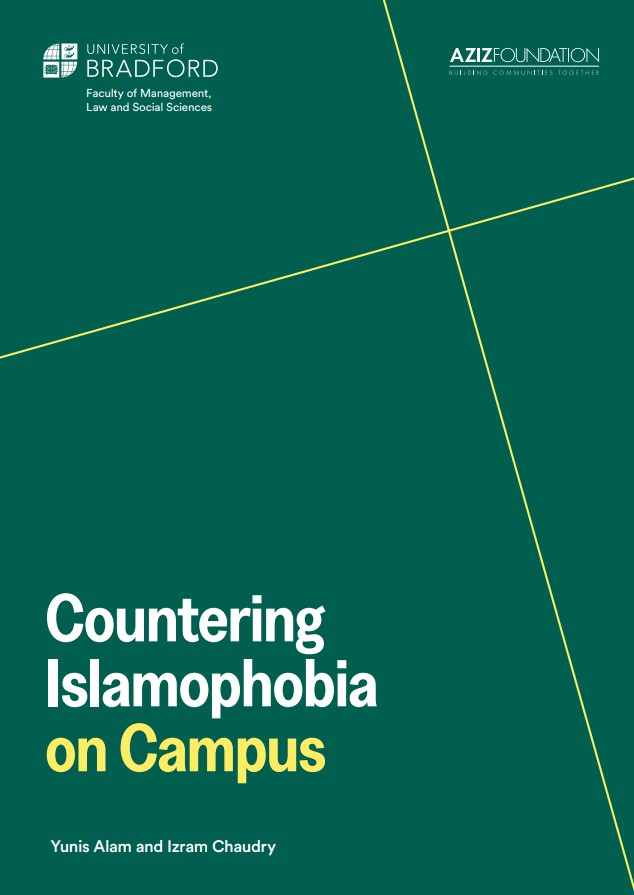
Muslim Friendly Universities Report - Countering Islamophobia on Campus
As part of our Muslim Friendly Universities Programme, The Aziz Foundation and the University of Bradford co-funded a research project to investigate the lived experiences of Muslim staff and students on campus.
'Countering islamophobia on Campus', authored by the principal investigators Yunis Alam and Izram Chaudry, is exceptionally insightful in shedding light on manifestations of Islamophobia in the institutional context of campus life.
The report analyses Muslim perceptions and experiences; the sense of belonging felt by staff and students; and the efficacy of institutional interventions in tackling prejudice and discrimination. Furthermore, it evaluates how effective current mechanisms for reporting instances of Islamophobia are at the University of Bradford.
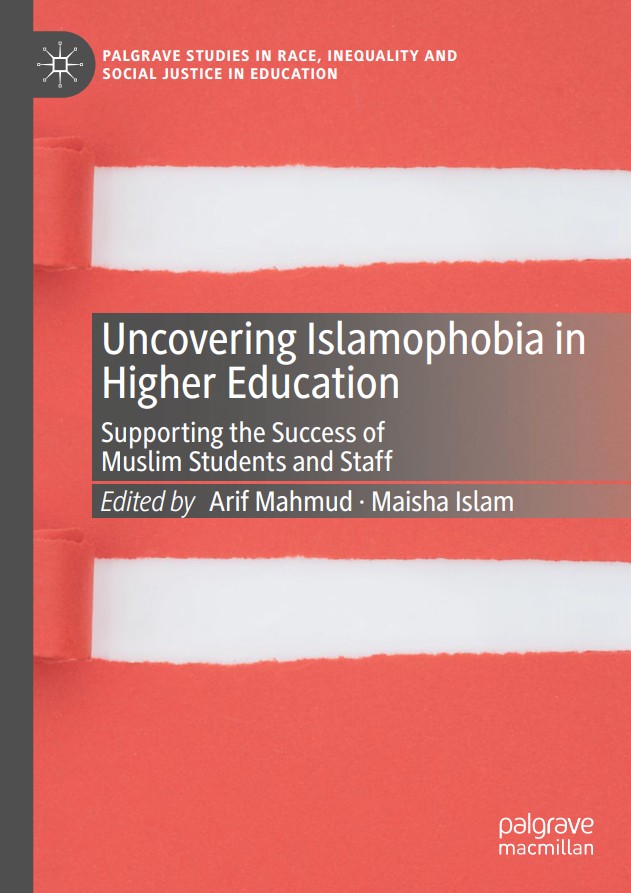
Uncovering Islamophobia in Higher Education: Supporting the Success of Muslim Students and Staff
Aimed at higher education practitioners, senior university leaders, and race equality policy experts, this volume - edited by Arif Mahmud and Maisha Islam - is an essential resource for those committed to fostering inclusivity on university campuses.
Dr Zain Sardar, Programme Manager at The Aziz Foundation, contributes a compelling chapter, "The 'New' Intersectionality of Disadvantage? British Muslims and the Widening Participation Agenda". His analysis sheds light on how British Muslims have been systematically excluded from evolving frameworks designed to enhance access to higher education.
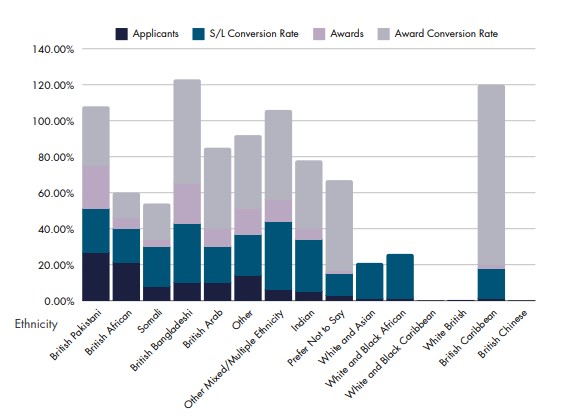
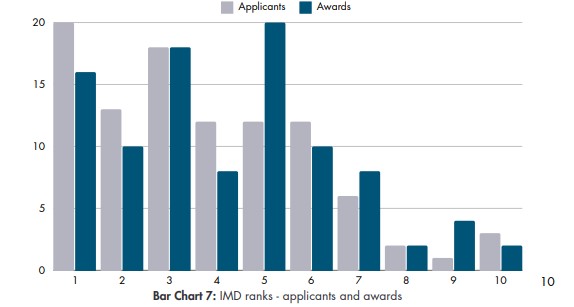
Aziz Foundation Scholarship Programme Analysis 2024
The data in this report has been generated by the 2024 application season of the Aziz Foundation's Masters Scholarship Programme.
The publication covers datasets on applications and awards, including course of study, demography, socio-economic background and other indicators of disadvantage.
Where possible, this year's datasets are contextualised in reference to previous seasons, and in relation to national figures provided by the the ONS and HESA.
This may of benefit for university stakeholders, policy makers, and those working in the social mobility sector.
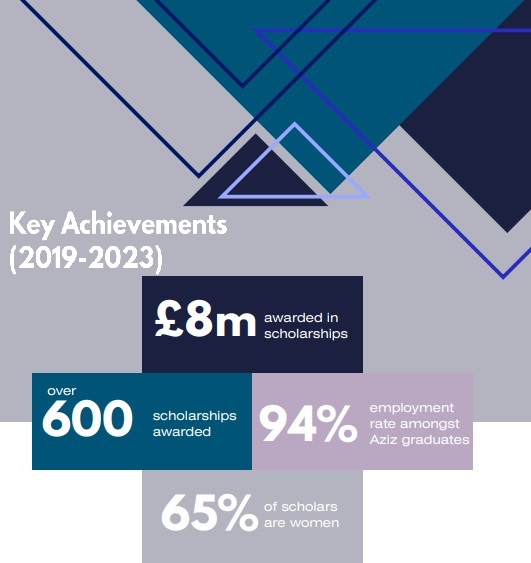
Aziz Foundation Overview Presentation Slides for Stakeholders
These presentation slides provide an accessible overview for stakeholders and the public of the Aziz Foundation's mission, programmes, and impact.
The slides briefly cover the key achievements between 2019-23 for the Scholarships and Internships programme.
In addition, it gives a summary of the mentoring scheme and the social impact and systemic change that the Foundation hopes to facilitate.

Emerald x The Aziz Foundation 100 - Inspiring Muslims: Next Generation Edition list
Since their inception, both The Aziz Foundation and Emerald Network have served as platforms to showcase the best talent within British Muslim communities, spanning a diverse range of sectors and professions.
In 2019, to mark its 15th anniversary, Emerald Network published the first Emerald 100 list, highlighting a remarkable array of talent within the network.
This year, in celebration of its 20th anniversary, Emerald Network is honoured to collaborate with The Aziz Foundation to showcase inspiring next generation Muslims – aged 40 or under at 1 January 2024.
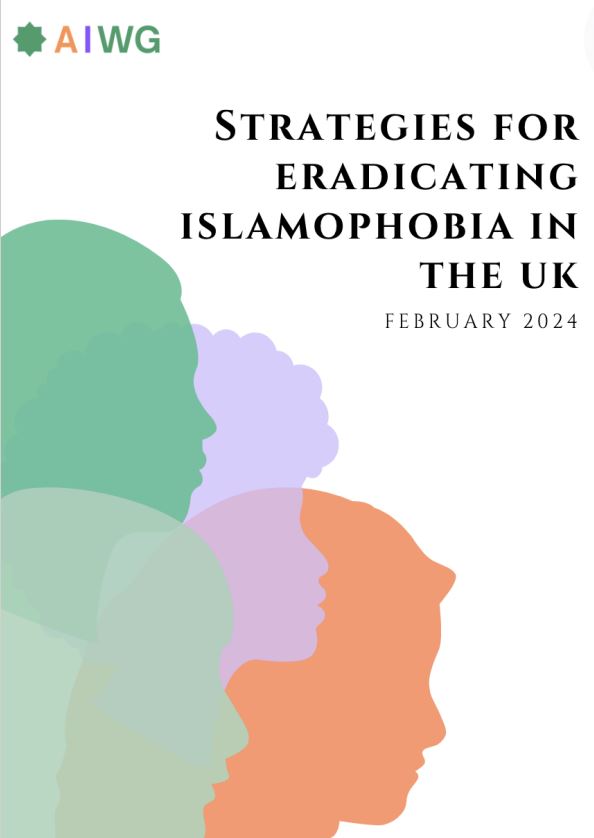
Strategies for Eradicating Islamophobia in the UK
The Anti-Islamophobia Working Group (AIWG) has published its first report, looking at a set of strategies and alliances that can effectively counter Islamophobia in the UK Context.
The publication sets out clear goals and actions, considering good practice and recommendations that can help major state actors mobilise and reverse the increasing normalisation of Islamophobia in society.
The AIWG is a coalition of civil society organisations working collaboratively together to eradicate Islamophobia in the UK.
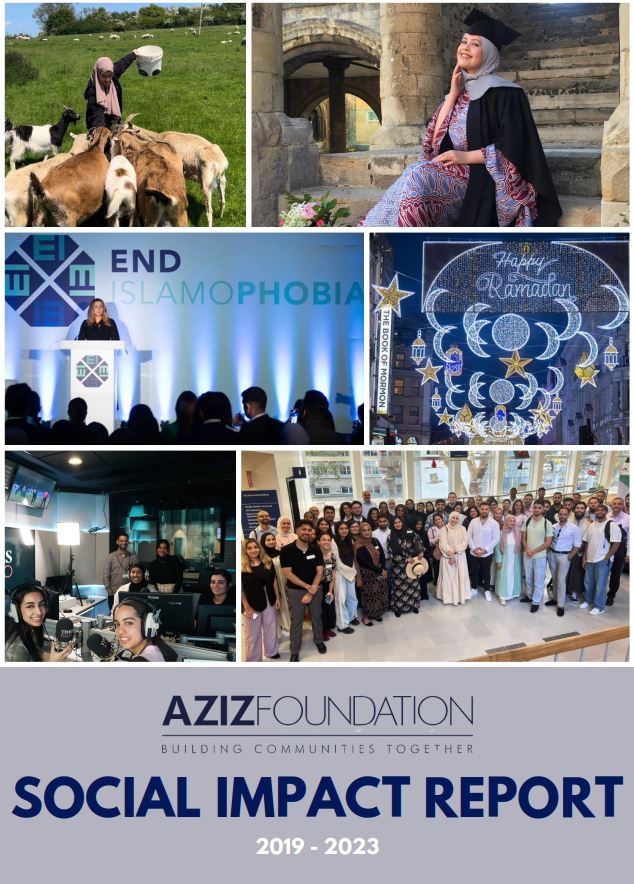
Aziz Foundation Social Impact Report (2019-23)
The Aziz Foundation has now published its first social impact report, covering the period 2019-23.
The publication provides an evaluation of the Foundation’s flagship Masters Scholarship scheme and internship programme, outlines its theory of change and strategic approach, and includes key case studies of its beneficiaries. It also details the learnings that have emerged from the last five years of the Foundation's philanthropic giving.
The report will be of interest to the Foundation’s university partners, the wider higher education sector, employers hosting interns, and charities within the third sector.
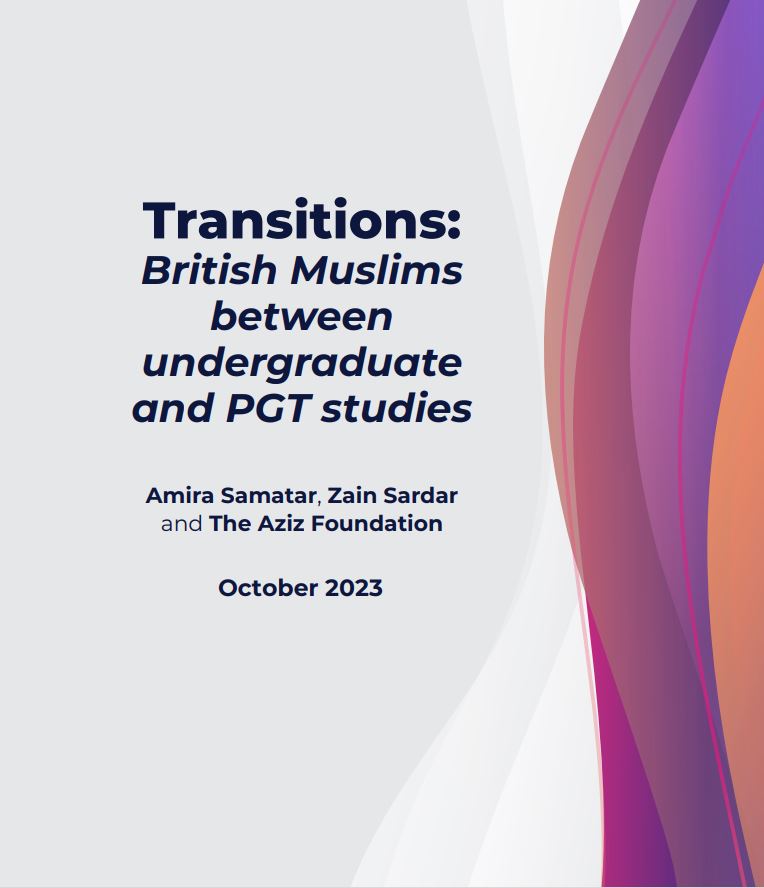
Transitions: British Muslims between undergraduate and PGT Studies
This report, based on a definitive analysis of a survey of Aziz Foundation scholarship candidates, examines the progression challenges confronting British Muslims when accessing PGT level study. The authors centre the testimonies of British Muslims, exploring the intersectional disadvantage they experience within higher education. It considers some recommendations that universities can implement in widening access for this demography. Additionally, it includes reflections from stakeholder participants in a summary from a specially convened roundtable discussion on the findings.
The co-authors of this report are Dr Zain Sardar, programme manager at the Aziz Foundation, and Amira Samatar, postgraduate researcher at Sheffield Hallam University.
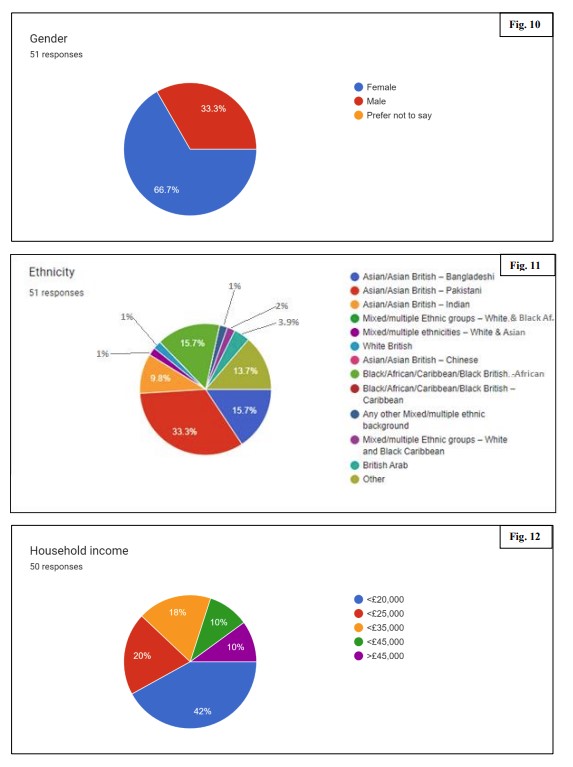
Scholarship Candidate Summary Report 2022
This report provides accessible summary data on Masters scholarship candidates experiences of higher education, at the undergraduate study, and aspirations for academic progression.
Key areas explored include the student experience, student support services, expectations of postgraduate study, and equalities monitoring.
The data in the report is drawn from the 2022 season of the Aziz Foundation's Masters Scholarships Programme.
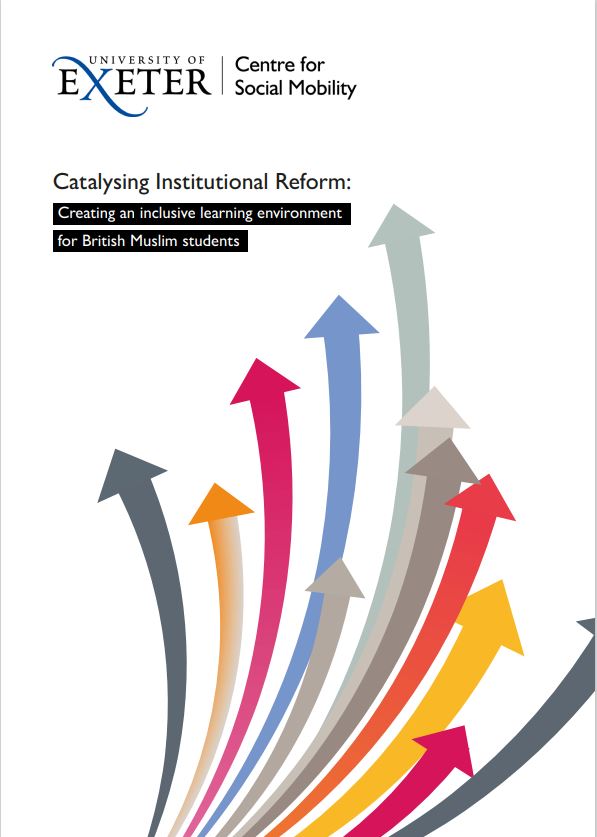
Catalysing Institutional Reform: Creating an inclusive learning environment for British Muslim students
This paper explores recommendations for action that can aid universities in creating an inclusive learning environment for British Muslim students. It considers concrete policy actions that can enable social mobility and deliver intersectional justice. The goal of the report is ultimately to catalyse institutional reform across the higher education sector.
The paper was published by the University of Exeter’s Centre for Social Mobility. It is based on a keynote speech given by Dr Zain Sardar during a seminar on access and participation hosted by the Centre.
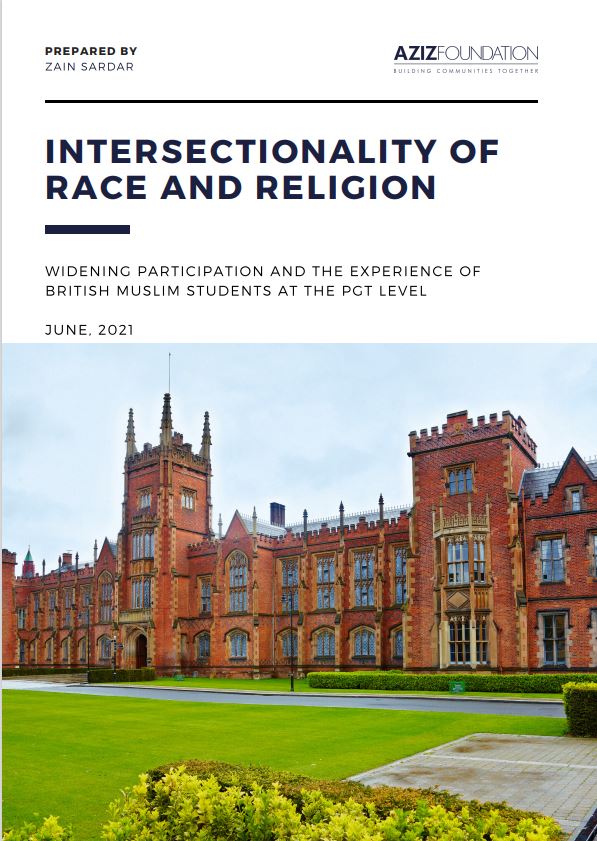
Intersectionality of Race and Religion: Widening Participation and the Experience of British Muslims at the PGT Level
The report represents the preliminary findings of the Foundation’s internal research, drawing upon data from a survey of scholarship candidates in 2019/20. It focuses on the lived experience of British Muslim students, their aspirations in pursuing postgraduate study, and the challenges they encounter on campus.
The recommendations presented in the publication indicate the ways in which universities can catalyse policy and institutional reform in order to reduce equality gaps, widen access and opportunities at the PGT level, and create a more inclusive learning environment for British Muslim students.
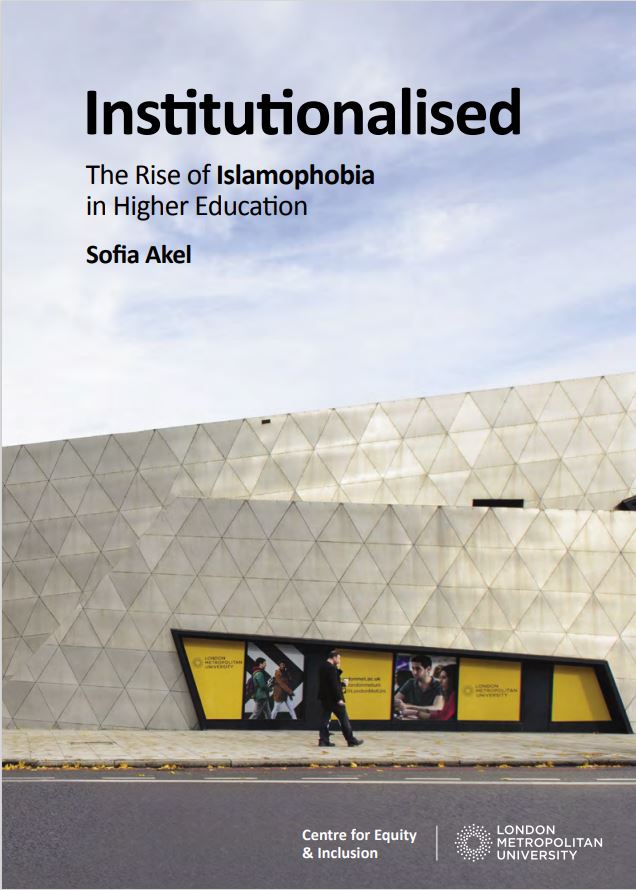
Institutionalised: The Rise of Islamophobia in Higher Education
London Metropolitan University’s Centre for Equity and Inclusion have published a landmark report on Islamophobia within the higher education sector. This follows the University’s adoption of the APPG’s working definition of Islamophobia in November 2020, and a subsequent panel discussion on the report’s findings.
Institutionalised: The Rise of Islamophobia in Higher Education has been authored by acclaimed race equality activist, Sophia Akel, with a foreword by the Pro-Vice Chancellor and Director of the Centre, Dr Zainab Khan. The report cites the Aziz Foundation’s research and its role in encouraging institutional change, to create a more inclusive learning environment for British Muslims on university campuses.
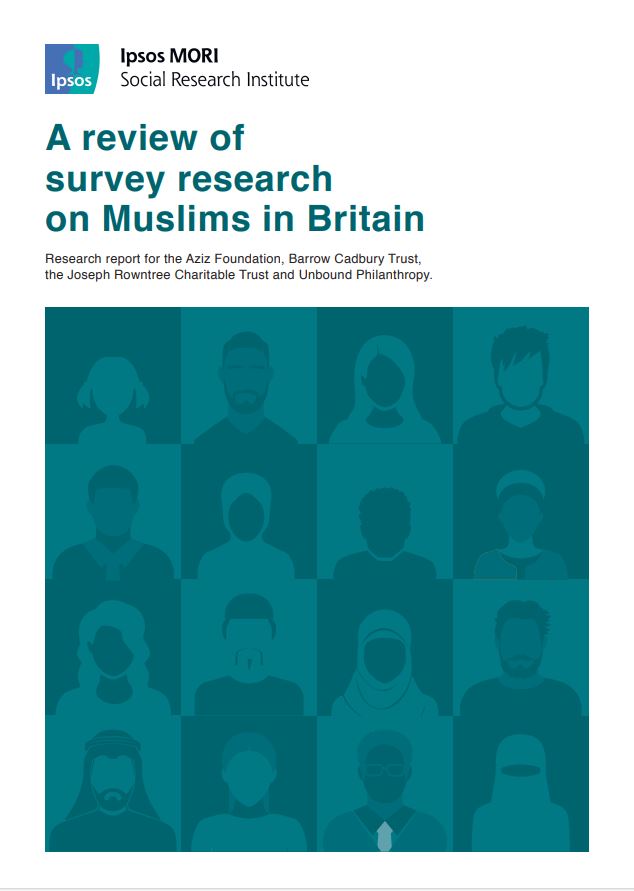
A Review of Survey Research on Muslims in Britain
The Foundation, together with Barrow Cadbury Trust, the Joseph Rowntree Charitable Trust and Unbound Philanthropy commissioned a report by IPSOS Mori analysing research since 2010 to build a comprehensive picture of British Muslims and their values and identities.
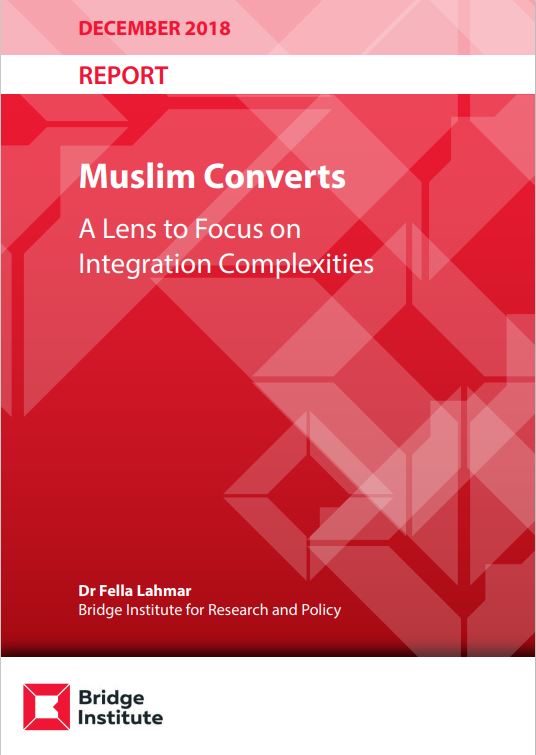
Muslim Converts: A Lens to Focus on Integration Complexities
This report argues that converts represent a transitional population that has thepotential to form an effective bridge between heritage Muslim communities and
the larger non-Muslim European societies. Rather than dealing with them from a risk perspective of potential terrorism, they can be seen as part of the solution in bridging communities at an epistemological level. It also highlights the need for contextual religious scholarship that takes into consideration converts’ specific circumstances. Although this area of scholarly research would include some shared experiences with the heritage minority Muslim communities in Western societies, it would also contain some facets that are specifically bound solely to the converts’ journeys and transitions. These contain, for example, a range of psychological, social and financial challenges that can arise from entering Islam without having extended family support.
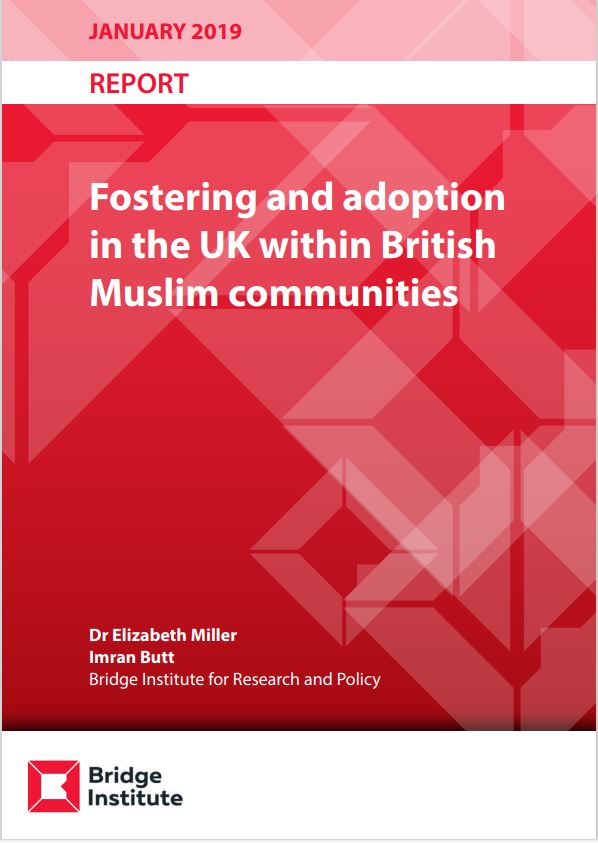
Fostering and adoption in the UK within British Muslim communities
This report examines the challenging relationship between Islam and fostering and adoption in the UK, and efforts currently being made to address it. Through an analysis of extant literature and data from a small-scale pilot study based on interviews with foster care agencies, this report firstly explains why an influx of immigrant children and a growing local Muslim population mean that it is important to focus on fostering and adoption in Muslim communities. It then considers the need for research in this area to look specifically at religion, before subsequently looking explicitly at current care policies and the recruitment and retention of Muslim carers. The report also discusses potential reasons why Muslim children enter care, and the challenges faced by those who become foster carers. It makes policy recommendations centred on the need to make the current system more transparent, and to provide more support to carers.
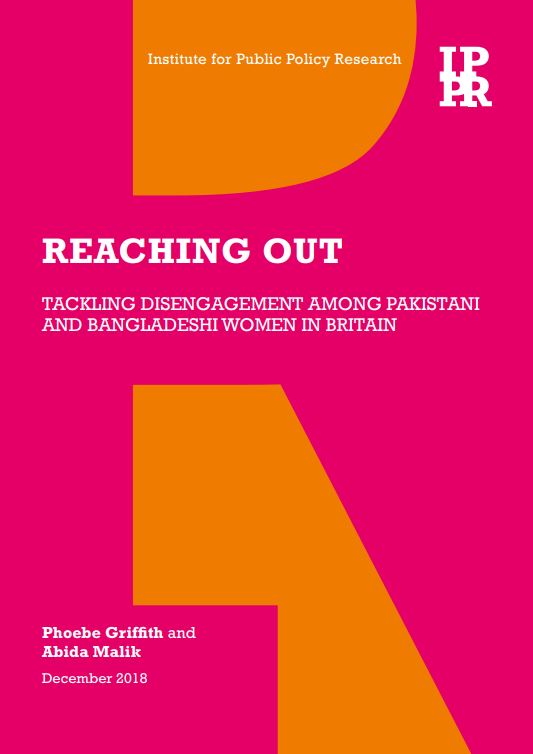
Reaching out: Tackling Disengagement Among Pakistani and Bangladeshi Women in Britain
A Joint Report by Institute for Public Policy Research (IPPR) and Bridge Institute, supported by the Aziz Foundation. The community-based interventions profiled as part of this research demonstrate that these approaches can be highly effective, but they are struggling, and remain dependent on a shrinking pool of local authority grants. Ensuring that community-based support remains viable will be critical to tackling disengagement among Pakistani and Bangladeshi women. This report, sets out an initial road map for how to increase levels of cooperation between public sector agencies and community groups on the ground.
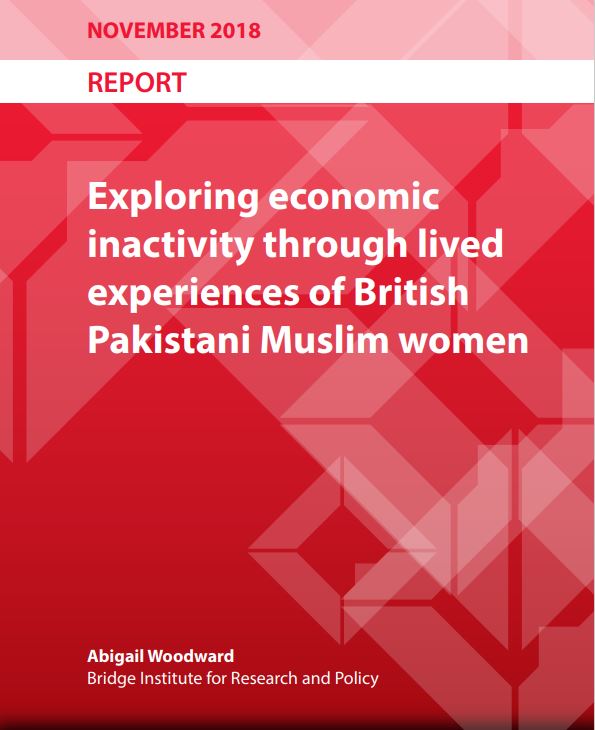
Exploring economic inactivity through lived experiences of British Pakistani Muslim women
This report by the Bridge Institute, supported by the Aziz Foundation, discusses the lived experiences of Pakistani Muslims in Sheffield, drawing upon data from qualitative interviews and a focus group to explore some of the disadvantages faced by Pakistani Muslim women in the UK. The report explores the perspectives of
both housewives and working mothers, illustrating the different levels of autonomy and control that Pakistani Muslim women have over their lives.
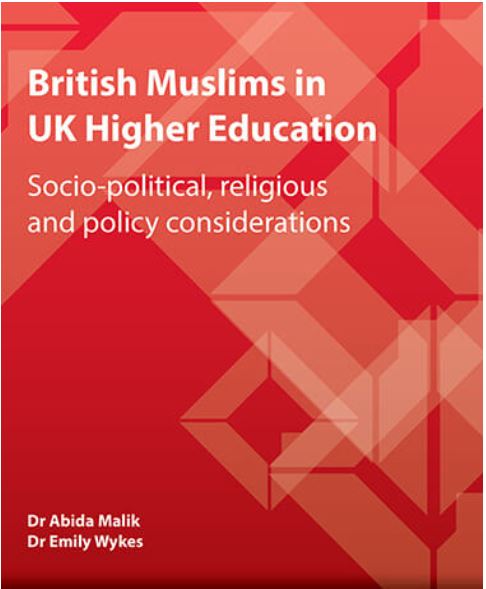
British Muslims in UK Higher Education: Socio-political, religious and policy considerations
The Foundation supported the research behind this report by the Bridge Institute. It discusses the political, legislative, and religious contexts to HE study for British Muslim students. It asserts from the literature that religion plays a key factor in motivating students’ educational aspirations. From this it makes several recommendations, including the need for more extensive collection and sharing of HE students’ (anonymised) identity data, to monitor equality levels.
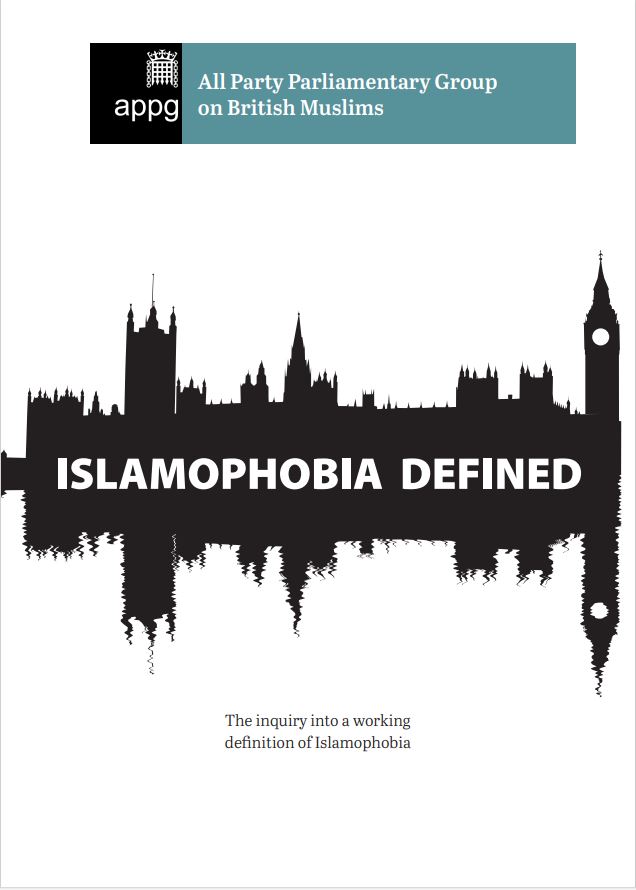
Islamophobia Defined - The inquiry into a working definition of Islamophobia
The Aziz Foundation supported the APPG on British Muslim’s 6-month inquiry. This is the most extensive piece of work done in collaboration with parliamentarians, academics, legal experts, and British Muslim communities looking into the realities of Islamophobia. The inquiry concludes by providing a working definition of Islamophobia. The definition is exemplified by case study examples and is presented within a framework resembling the IHRA definition of Antisemitism, providing requisite guidelines on the operational aspects of the definition.
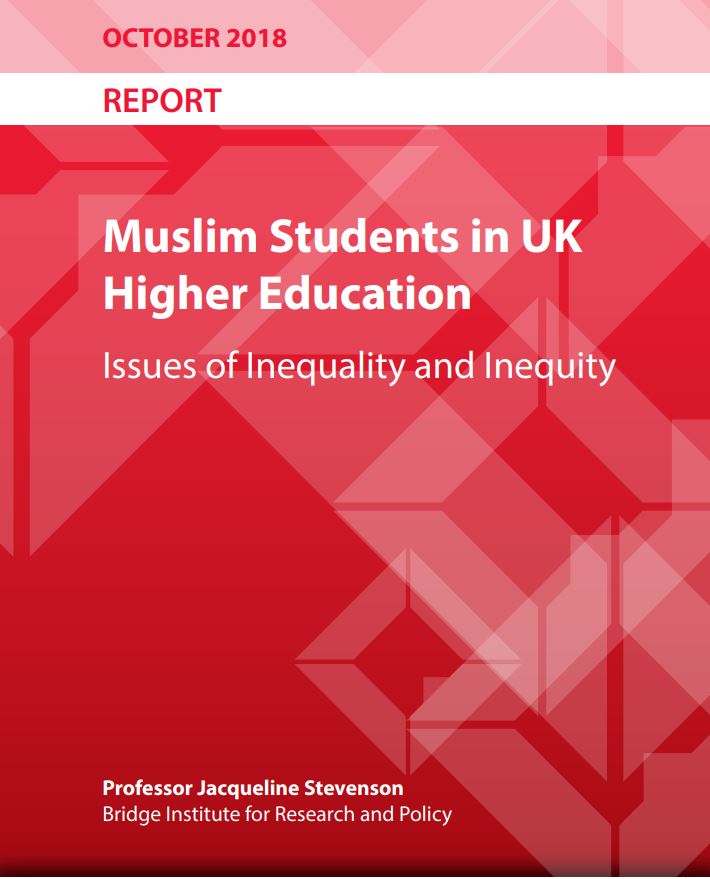
Muslim Students in Higher Education: Issues of Inequality and Inequity
This Aziz Foundation supported report by Professor Jacqueline Stevenson for the Bridge Institute suggests that whilst many Muslims students have positive experiences of higher education, others face unequal levels of disadvantage, prejudice, or discrimination. This can lead to feelings of isolation and marginalisation and impact on Muslim students’ experiences, sense of belonging, academic outcomes and their subsequent upward social mobility.
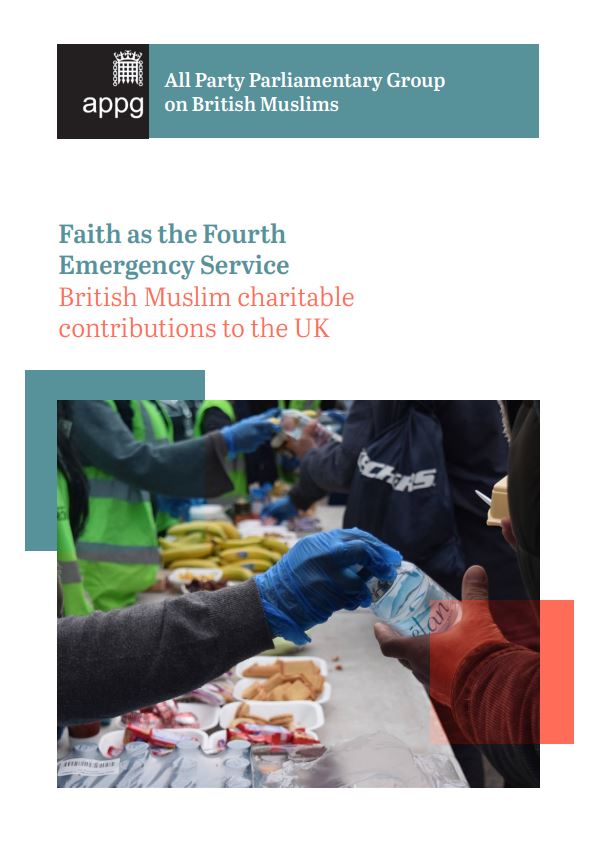
Faith as the Fourth Emergency Service: British Muslim charitable contributions to the UK
This report supported by the Aziz Foundation and the APPG on British Muslims acknowledges the range of work done by Muslim charities in the UK, which evoke the very best of British Muslim communities: a commitment to giving to those less fortunate than themselves, a desire to help those in need and a willingness to volunteer time and extend friendship.
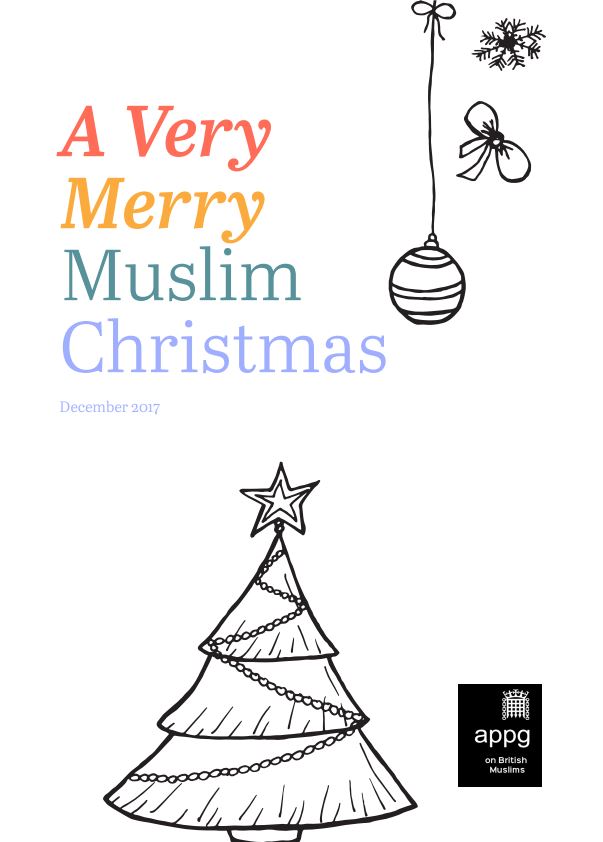
A Very Merry Muslim Christmas
The Foundation supported this All-Party Parliamentary Group (APPG) on British Muslims report . The report sheds light on the untold story of British Muslim charities, drawing on oral and written evidence presented to the group during hearings held in Parliament in November 2017.
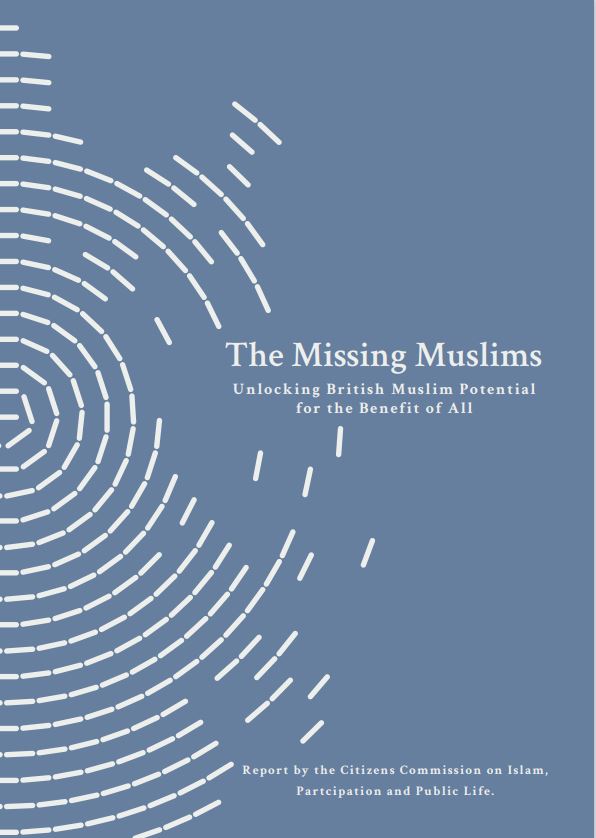
The Missing Muslims – Unlocking British Muslim Potential for the Benefit of All
The Foundation supported this report by the Citizens Commission on Islam, Participation and Public Life, which covers a range of issues that can hinder and support the presence of Muslims in British public life.
The report contains eighteen recommendations for stakeholders including civil society and the business sector, government and local authorities and Muslim communities in the UK.
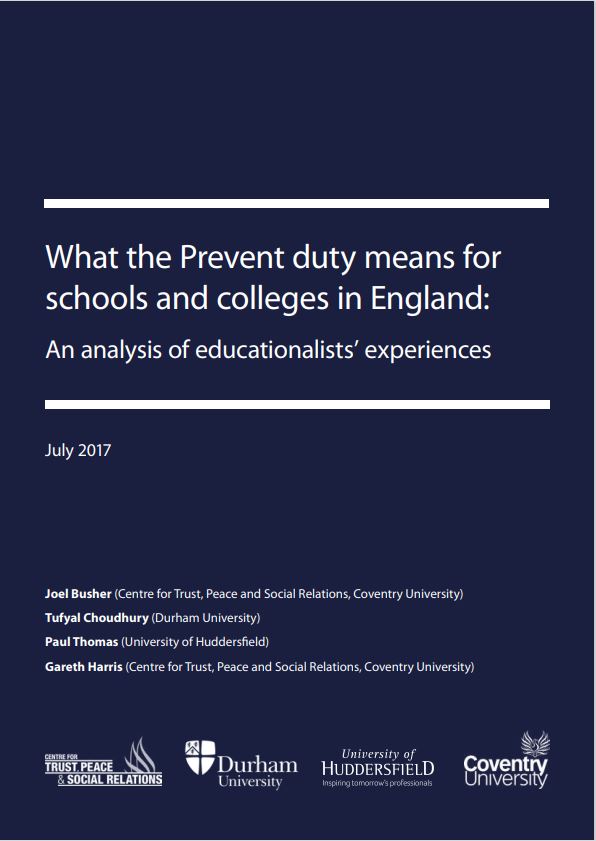
What the Prevent duty means for schools and colleges in England
The Foundation part-funded this report that argues for a stronger evidence base from which to understand and assess how the Prevent duty as it plays out in schools and colleges. This report begins to respond to this requirement. Focusing on the experiences and attitudes of school and college staff, it examines four questions:
1) How has the new Prevent duty been interpreted by staff in schools and colleges in England?
2) How confident do school/college staff feel with regards to implementing the Prevent duty?
3) What impacts, if any, do school/college staff think the Prevent duty has had on their school or college, and on their interactions with students and parents?
4) To what extent, if at all, have school/college staff opposed or questioned the legitimacy of the Prevent duty?
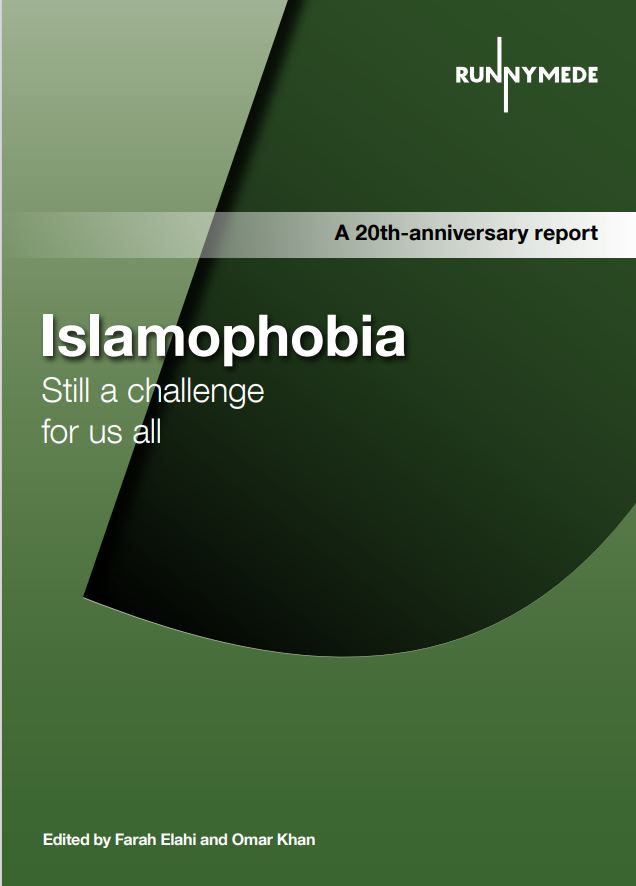
Islamophobia: Still a challenge for us all
This anniversary report (released November 2017) brings together varied perspectives from leading thinkers on inequality and Muslims in Britain, unpacking issues such as integration, hate crime, gender, identity and, of course, racism.
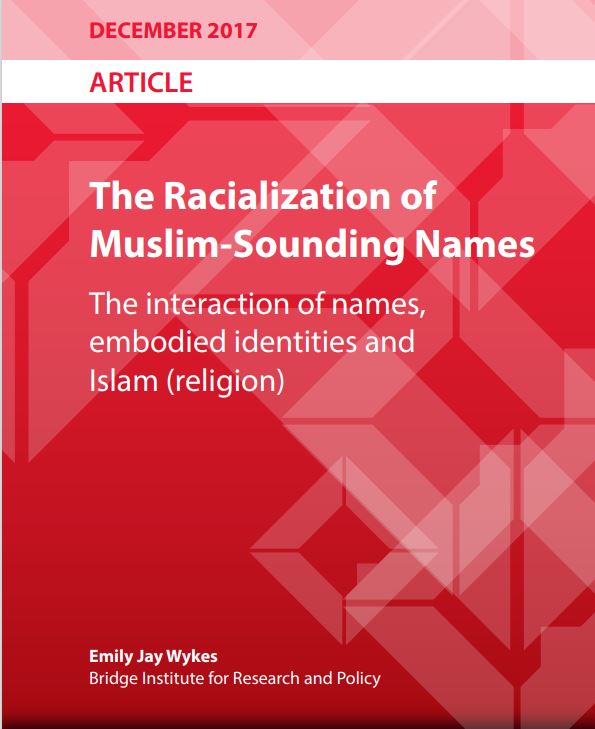
The Racialization of Muslim-sounding names - Article
This article by Emily J Wykes discusses the experiences of qualitative interview participants, who have – at different times – borne a ‘white British’ name, and a ‘Muslim-sounding’ one, which has enabled them to compare their experiences of using the different names. With reference to various sociological theory, it posits that having Islamic names, within the UK context, can lead to one’s racial categorization by others and associated feelings of vulnerability. Some participants’ name choices for themselves and/or for their children were affected by fears of Islamophobia and loss of ‘white’ privilege, whilst others took a more defiant stance against Islamophobia and racism. A nexus of name – embodied identity – accent – nationality – religion is used to further analyse the participants’ experiences.
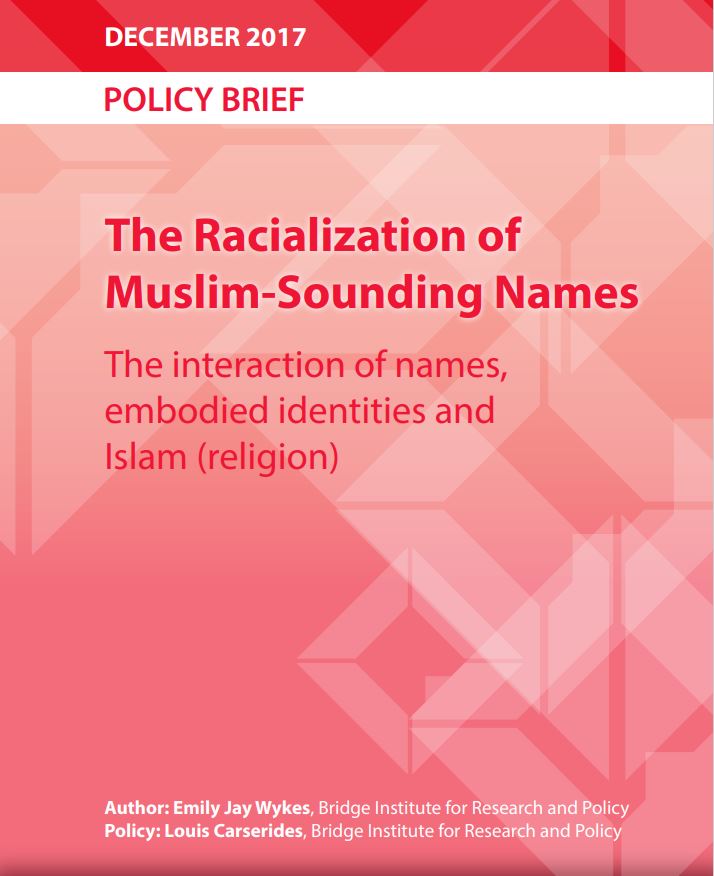
The Racialization of Muslim-sounding names - Policy Brief
The Foundation supported the research for this policy brief by the Bridge Institute. It demonstrates that, despite claims that the UK is a post-racial society; names are understood in a racialised way. The research findings stem from the qualitative experiences of interview participants, who have – at different times – borne a ‘white British’ name, and a ‘Muslim-sounding’ name, which has enabled them to compare their experiences of using the different names. Names can impact both how a person is racialised and the degree of privilege they have access to. The report reveals anti-Muslim racialisation manifests at multiple levels, including at an everyday “micro-level” which feeds into broader, more complex problems around integration, social participation and reduced levels of aspiration.